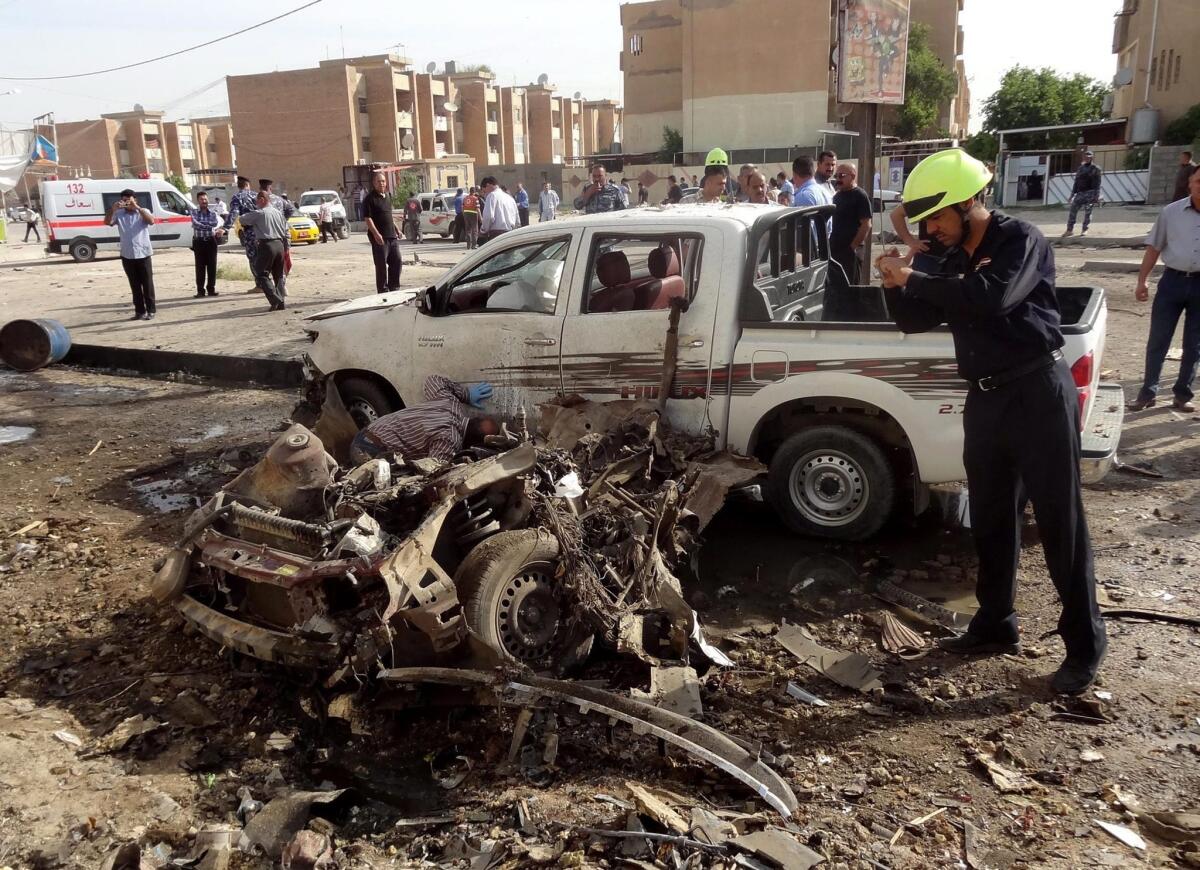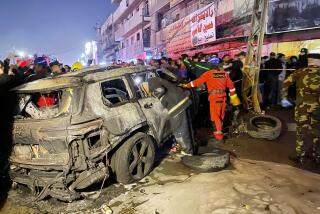Bombings in Iraq kill more than 30 people

BEIRUT -- A string of bombings in Iraq claimed the lives of more than 30 people Monday in the run-up to provincial elections scheduled for this weekend.
The attacks, which left dozens wounded, took place around the country, including in Baghdad; the southern city of Nasiriya; and in the northern cities of Kirkuk, Tuz Khurmatu, Samarra and Mosul. The blasts followed the assassinations over the weekend of two Sunni Muslim candidates for provincial elections.
The deadliest attacks occurred in Baghdad, where security sources said 21 people were killed, including three in a major security breach when a pair of car bombs exploded by the heavily patrolled entrance to Baghdad International Airport. The Baghdad military command said five car bombs exploded in the morning. A sixth car bomb blew up Monday evening in the predominantly Shiite Muslim neighborhood of Sadr City.
Prime Minister Nouri Maliki’s Dawa party issued a statement condemning the violence. “These terrorist acts, which come on the eve of elections, aim to thwart the electoral process and the political process as a whole and they are a desperate attempt of those remnants seeking to destroy the national fabric in Iraq and to incite sectarian strife,” the party said.
The country continues to see major attacks every month.
The provincial elections scheduled for Saturday will be held in all Shiite parts of the country. However, they will not be held in two primarily Sunni provinces, Anbar and Nineveh, after Maliki postponed the elections there without consulting Iraq’s election commission, citing poor security conditions.
Following a popular outcry and a boycott of Cabinet meetings by two major political blocs, the vote in the two provinces has been tentatively scheduled for mid-May.
Elections in the Kurdish north are to take place later in the year.
Since late December, Anbar and Nineveh have been the sites of Sunni protests against Maliki’s Shiite-led government. The provinces also border war-torn Syria, raising Maliki’s fears that Sunni Arabs in those regions could seek common cause with their brethren across the border. The Islamic State of Iraq, Al Qaeda’s umbrella group in Iraq, announced last week that it had formed a union with the Al Nusra Front, Al Qaeda’s affiliate in Syria.
The coming elections will be a major test of Maliki’s power and whether he can guarantee balloting without violence following last year’s exit of U.S. forces from Iraq. It will also be viewed as a litmus test of how committed Iraqi political factions are to holding a free and fair vote without the U.S. military watching over the process.
ALSO:
Pope Francis reaffirms crackdown on U.S. nuns
North Korea marks founder’s birthday with flowers, not missiles
Greece qualifies for new bailout funds but must impose mass layoffs
More to Read
Start your day right
Sign up for Essential California for news, features and recommendations from the L.A. Times and beyond in your inbox six days a week.
You may occasionally receive promotional content from the Los Angeles Times.






